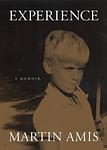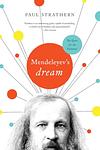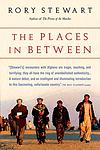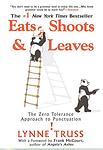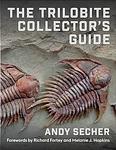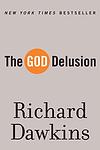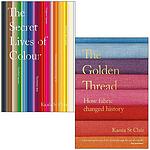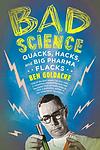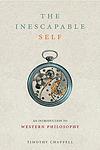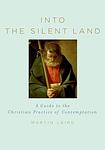The Greatest British "Nonfiction" Books Since 2000
Click to learn how this list is calculated.
This list represents a comprehensive and trusted collection of the greatest books. Developed through a specialized algorithm, it brings together 273 'best of' book lists to form a definitive guide to the world's most acclaimed books. For those interested in how these books are chosen, additional details can be found on the rankings page.
Genres
Countries
Date Range
Reading Statistics
Click the button below to see how many of these books you've read!
Download
If you're interested in downloading this list as a CSV file for use in a spreadsheet application, you can easily do so by clicking the button below. Please note that to ensure a manageable file size and faster download, the CSV will include details for only the first 500 books.
Download-
1. Experience by Martin Amis
"Experience" is a memoir which delves into the author's life, exploring his relationships with his family, friends, and his own self. The narrative is a candid reflection on his father's influence, his friendships with other writers, his marriages, and his children. The author also discusses his experiences with fame, age, and loss, providing an intimate look into his personal and professional journey. The memoir is a blend of the author's unique humor, sharp observations, and poignant moments, offering a compelling and deeply personal narrative.
-
2. Mendeleyev's Dream by Paul Strathern
This book traces the history of chemistry from the ancient philosophers' wild speculations about the composition of the universe to the creation of the periodic table by Dmitri Mendeleyev. Through a blend of storytelling and science, it explores the development of atomic theory and chemical elements, leading up to Mendeleyev's groundbreaking dream in which he envisioned the periodic table in its modern form. The narrative delves into the lives and discoveries of key figures in the field of chemistry, illustrating how their work contributed to our understanding of the elements that make up the world around us.
-
3. Postwar by Tony Judt
"Postwar" is a comprehensive analysis of the history of Europe from the end of World War II to the early 21st century. The book examines the major political, cultural, social, and economic changes that have shaped the continent, including the Cold War, the rise and fall of the Soviet Union, the rebuilding of Western Europe, and the challenges of integrating Eastern Europe into the European Union. It also delves into the impact of these events on the daily lives of Europeans, exploring themes of memory, identity, and the struggle to come to terms with the past.
-
4. The Age Of Wonder by Richard Holmes
"The Age of Wonder" explores the scientific and cultural advancements of the late 18th and early 19th centuries, known as the Romantic Age. Richard Holmes delves into the lives and achievements of prominent figures such as Joseph Banks, Humphry Davy, and William Herschel, who revolutionized fields like astronomy, chemistry, and botany. Through vivid storytelling, Holmes captures the spirit of curiosity, imagination, and wonder that defined this era, highlighting the profound impact it had on shaping our modern understanding of science and the world.
-
5. The Places In Between by Rory Stewart
"The Places In Between" is a memoir by Rory Stewart about his journey on foot across Afghanistan in 2002, shortly after the fall of the Taliban. He travels from Herat to Kabul, encountering a variety of people and landscapes along the way. The book provides a unique insight into the culture and history of Afghanistan, as well as the challenges faced by the country in the aftermath of war. Stewart's writing is both lyrical and informative, making for a compelling read.
-
6. Nothing to be Frightened Of by Julian Barnes
This book is a memoir that explores the author's fear of death and his quest for meaning in life. It blends elements of autobiography, philosophy, and literary criticism, drawing on the author's personal experiences, his relationships with his family, and his thoughts on writers and philosophers who have influenced him. The narrative is marked by the author's wit, humor, and keen observations, offering a thoughtful and engaging exploration of mortality and the human condition.
-
7. It's Not How Good You Are, Its How Good You Want To Be by Paul Arden
This motivational guide offers a unique insight into the world of advertising and the mind of a creative genius. It challenges conventional wisdom with a plethora of pithy, often paradoxical advice, aiming to inspire readers to break the rules, think differently, and embrace failure as a necessary step towards success. The book is filled with bold typography, distinctive illustrations, and anecdotes from the author's own illustrious career, making it a compact but impactful read for anyone looking to excel in their professional life or personal endeavors by realizing that ambition and passion can be more critical than talent.
-
8. Eats, Shoots and Leaves by Lynne Truss
This book is a humorous, yet educational, exploration of punctuation in the English language. The author uses wit and sarcasm to highlight the importance of correct punctuation, demonstrating how it can drastically change the meaning of a sentence. It provides examples of punctuation errors and their hilarious consequences, while also offering practical advice on how to avoid such mistakes. The book is a spirited call to arms for grammar enthusiasts, emphasizing the necessity of preserving the clarity and precision in writing that proper punctuation provides.
-
9. Trilobite! by Richard Fortey
The book offers an enthralling journey into the ancient world of trilobites, the early arthropods that dominated the seas long before the age of dinosaurs. Through a blend of paleontology, geology, and evolutionary biology, the text delves into the fascinating life and times of these extinct creatures, which thrived for over 300 million years. The author's passion for the subject shines through as he explores the significance of trilobites in understanding Earth's history and the development of life, all the while painting a vivid picture of the prehistoric oceans that were once teeming with these complex and varied life forms.
-
10. The Hare with Amber Eyes: A Family's Century of Art and Loss by Edmund de Waal
This book is a family memoir that traces the journey of a collection of miniature Japanese sculptures, called netsuke, through generations of a wealthy Jewish family. The narrative delves into the family's rise to prominence in the late 19th and early 20th centuries, their survival during the Nazi regime, their post-war struggles, and their eventual decline. The author uses the netsuke as a lens to explore the themes of art, loss, and family legacy.
-
11. Orwell And Politics by George Orwell
The book is a comprehensive anthology that brings together a selection of essays, letters, and excerpts from novels, showcasing the author's profound political thought and his unwavering concern for social justice, freedom, and the abuses of political power. It provides insight into the author's evolving political ideology, from his early days as a colonial policeman in Burma to his experiences in the Spanish Civil War, which shaped his views on totalitarianism and socialism. The collection serves as both a reflection of the tumultuous political landscape of the 20th century and a testament to the author's enduring influence as a political writer and thinker.
-
12. Don Quixote's Delusions by Miranda France
"Quixote's Delusions" is a travel memoir that explores the contemporary Spanish landscape through the lens of the classic novel "Don Quixote." The author embarks on a journey through Spain, retracing the steps of the novel's protagonist while examining the enduring influence of the tale on the Spanish culture and psyche. Along the way, she encounters a diverse cast of characters and experiences that reflect the quixotic blend of reality and fiction, revealing the ways in which the spirit of Don Quixote continues to resonate in modern Spain. Her reflections offer insights into the country's history, traditions, and the everyday lives of its people, all while pondering the universal themes of idealism, madness, and the pursuit of dreams.
-
13. The God Delusion by Richard Dawkins
This book is a well-known critique of religion, arguing that belief in a supernatural creator significantly lacks empirical evidence. The author asserts that faith encourages wars and fosters fanaticism. He also challenges the idea that morality can only come from religion, suggesting instead that humans possess innate empathy and cooperation. The book also explores the roots of religion, explaining its evolution as a byproduct of our tendency to assign agency to inanimate objects and forces. Ultimately, the author encourages atheism and a sense of awe derived from science and the natural world.
-
14. Untold Stories by Alan Bennett
"Untold Stories" is a collection of essays, diary entries, and recollections by a renowned playwright. It provides an insightful look into his life, experiences, and thoughts. The book is divided into two parts, with the first part focusing on his family history and the second part containing his personal reflections and observations about various topics, including art, architecture, and literature. It offers a unique perspective on the author's upbringing in Leeds and his later life in London, as well as his views on society and culture.
-
15. London: The Biography by Peter Ackroyd
This book is a comprehensive exploration of the city of London, from its ancient origins to the modern era. The author delves into the city's rich history, culture, and unique character, examining its evolution through various lenses such as crime, religion, commerce, education, and entertainment. The narrative is brought to life with fascinating anecdotes, vivid descriptions, and a wealth of historical detail, providing an immersive and engaging portrait of one of the world's most iconic cities.
-
16. H Is For Hawk by Helen MacDonald
"H Is For Hawk" is a memoir by Helen MacDonald about her experiences training a goshawk named Mabel after the sudden death of her father. MacDonald reflects on her grief and the challenges of training a wild bird while also delving into the history of falconry and the life of T.H. White, the author of "The Once and Future King" who also trained a goshawk. The book explores themes of loss, nature, and the complexities of human-animal relationships.
-
17. The Secret Lives Of Colour by Kassia St. Clair
This book delves into the rich history and cultural significance of colors, exploring their origins, science, and social implications. It offers a vibrant journey through a rainbow of hues, from the rarest pigments to the most ubiquitous shades, revealing fascinating stories behind each color. The narrative uncovers how colors have been produced and used in art, fashion, politics, and warfare, shaping human civilization in profound ways. Through anecdotes and meticulous research, the book presents an eye-opening perspective on the palette of our world, illustrating how deeply colors influence our experiences and our very understanding of the world around us.
-
18. Marie Antoinette by Antonia Fraser
This historical biography provides an in-depth look at the life of the last Queen of France before the French Revolution. It delves into her Austrian origins, her marriage to Louis XVI, and her role in the opulent and politically turbulent court of Versailles. The book portrays her as a woman more complex and sympathetic than the often portrayed frivolous queen, examining her personal relationships, her struggles with the hostile French public, and her ultimate tragic end at the guillotine. Through meticulous research, the narrative aims to dispel the myths surrounding her legacy, offering a nuanced account of her life and the tumultuous era she lived in.
-
19. Bad Blood by Lorna Sage
"Bad Blood" is a memoir about a woman's escape from a repressive childhood in post-WWII Britain. The author recounts her experiences growing up in a dysfunctional family with a philandering vicar for a grandfather and a depressed and distant mother. Despite the bleak surroundings, she manages to find solace in literature and education, ultimately earning a scholarship to university. The book is a testament to the transformative power of education and the author's fierce determination to escape her past.
-
20. Why Be Happy When You Could Be Normal? by Jeanette Winterson
This book is a deeply personal memoir about a woman's quest for identity and happiness amidst a turbulent childhood. Raised by an abusive and religiously fanatic adoptive mother in a small, industrial town in Northern England, the author struggles with her sexuality, eventually being thrown out of her home for having a relationship with another woman. She later embarks on a journey to find her biological mother, all while wrestling with her own mental health issues and trying to make sense of her place in the world. The narrative is a raw exploration of love, loss, and the power of literature as a means of escape and self-discovery.
-
21. The Ordeal Of Elizabeth Marsh: A Woman In World History. by Linda Colley
"The Ordeal of Elizabeth Marsh" by Linda Colley tells the story of a remarkable woman who lived in the 18th century and traveled the world, experiencing various cultures and societies. Elizabeth Marsh was born into a wealthy family in England but faced many challenges throughout her life, including being kidnapped in Morocco and facing financial ruin. Colley uses Marsh's story to explore themes of gender, power, and imperialism, and to shed light on the experiences of women in world history.
-
22. Bad Science by Ben Goldacre
This book exposes the ways in which the media and advertisers manipulate and misrepresent science, leading to public misconceptions and confusion. The author, a doctor and science journalist, provides a critical examination of the pseudoscience behind popular health fads, cosmetics, and alternative medicine, while also critiquing the misuse of statistics and flawed studies. The book serves as a guide to understanding the scientific method and how to discern good science from bad, aiming to promote scientific literacy among the general public.
-
23. The Inescapable Self by Timothy Chappell
This philosophical work delves into the concept of selfhood, exploring the idea that despite the myriad ways individuals may change and evolve over time, there remains an inescapable core to one's identity. The author navigates through various philosophical traditions and thinkers to examine how the self is perceived, constructed, and understood in different contexts. By addressing questions of morality, autonomy, and the nature of personal change, the book offers a comprehensive analysis of what it means to be a self, arguing that there is an essential aspect of individual identity that persists through life's transformations. This exploration not only sheds light on the philosophical underpinnings of selfhood but also encourages readers to reflect on the nature of their own identity.
-
24. Into The Silent Land by M. S. (Martin S. ). Laird
"Into the Silent Land" is a profound exploration of contemplative prayer and the journey towards inner stillness. The book serves as a guide to understanding the depths of the human mind and the spiritual path that leads one to experience the presence of the divine within. Drawing from Christian mystical traditions and the wisdom of ancient monks, the text offers practical advice and insights for those seeking to deepen their meditation practice and foster a more intimate relationship with the transcendent. Through anecdotes, theological reflections, and step-by-step guidance, the reader is invited to embark on a transformative journey into the heart of silence, where the noise of the ego subsides and the soul encounters the sacred in the quiet spaces of contemplation.
-
25. The Shock Of The Old by David Edgerton
This book challenges the conventional narratives of innovation and technological progress, arguing that society's focus on the 'new' overlooks the importance and impact of older technologies that continue to shape our world. By examining how outdated technologies, such as the rickshaw or the propeller plane, have persisted and even thrived alongside modern advancements, the author presents a compelling case for reevaluating our understanding of technological change. Through a series of insightful case studies, the work encourages readers to reconsider the ways in which they think about technology's role in history and its influence on the present and future.
Reading Statistics
Click the button below to see how many of these books you've read!
Download
If you're interested in downloading this list as a CSV file for use in a spreadsheet application, you can easily do so by clicking the button below. Please note that to ensure a manageable file size and faster download, the CSV will include details for only the first 500 books.
Download